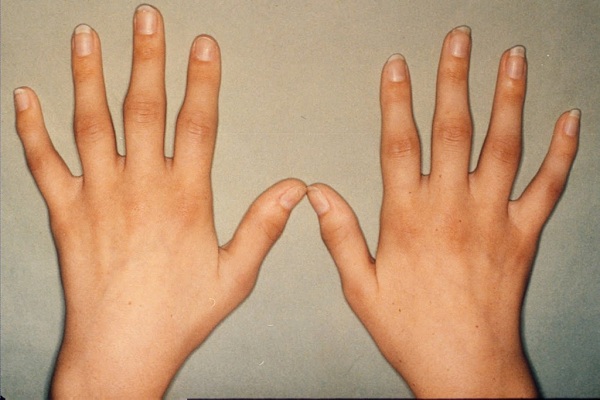Rheumatic Fever is very commonly seen among children.Our country India is one of the most affected places with Rheumatic fever globally.There are
Rheumatic Fever is very commonly seen among children. Our country India is one of the most affected places with Rheumatic fever globally. There are various Rheumatic Fever treatments and can be diagnosed permanently.
Today let’s have an overview on Rheumatic Fever and improvise our knowledge to caution our dear ones!
What is Rheumatic Fever?
Rheumatic Fever is a type of streptococcal pharyngitis infection or strep throat. It may cause damage to the heart, brain, joints, skin and other major parts. Rheumatic Fever is most commonly seen in places as Asia, Africa, Australia, United States, New Zealand and India.

Rheumatic Fever develops typically after 2-3 weeks of suffering from a streptococcal throat infection and can cause both short-term and long-term effects.
- Short-term effects may stay from days to weeks whereas
- Long-term effects may stay or reappear even after years
Rheumatic Fever is also called as:
1.Rheumatic Arthritis
2.Acute Rheumatic Fever
3.Inflammatory Rheumatism
Rheumatic Fever Facts:
- The utmost complicated Rheumatic Fever effect is Rheumatic Heart Disease (RHD).
- RHD is the most commonly found in children worldwide which damages heart valves and leads to chronic heart failure
- It can be preventable by various treatment methods present in the medical industry
- The Rheumatic fever effect is reduced drastically in various countries with the advanced Rheumatic fever treatment methods
- About half of the cases with Rheumatic Fever are having heart or carditis problems
- 75% of the cases are attacked with Arthritis with joint swellings in shoulders, knees, and hips.
- The main symptom is fever after one to two weeks after strep throat problem
- About 2% of the people are caused by skin problems with lumps and rashes
- Rheumatic Fever is mostly effected between the age group of 6 – 16 years children and rarely occurs in young and adults as well
- About 5% of the cases develop Rheumatic fever only when Strep throat is untreated
{ Also Read: Top 6 Yoga Asanas for Knee Pain and Joint Pain }
Rheumatic Fever causes:
A bacteria group is typically known as “Streptococcus” is the cause of the Rheumatic Fever. This leads to throat strep or scarlet fever and makes inflammatory disorder.
It further causes the body to attack its own tissue and thus wide-spreads inflammation throughout the body with this reaction. This is the basis of all the Rheumatic Fever symptoms.
Rheumatic Fever signs and symptoms and causes:
Rheumatic fever causes due to strep throats and in some individuals in further takes the illness even after 2-3 weeks with other symptoms and may cause damage to the heart and brain.
Rheumatic Fever signs and symptoms are most generic sometimes and these symptoms may also be the reason for some other health issue. Consult the doctor before confirming the existence of the fever. Here are a few of the causes and symptoms

Common symptoms of the rheumatic fever:
- Fever and sweating
- Vomiting’s
- Small, painless nodules under the skin
- Chest pain and stomach pain
- Rapid fluttering or pounding chest palpitations
- Fatigue or lethargy
- Shortness of breath and nosebleeds
- Sore joints in the wrists, elbows, knees, and ankles with pain
- Pain in one joint that transforms into another joint
- Red, hot, swollen joints
- A slightly raised ragged rash on the body
- Uncontrollable and jerky movements of the hands, feet, and face
- Inappropriate laughter
Major symptoms of Rheumatic Fever:
Consult Doctor immediately if a child is found with these symptoms and if neglected they may lead to severe health conditions.
- Tender or swollen lymph nodes
- Temperature of 101°F (38.3°C) or above
- Tonsil with red and swollen
- Small Red spots on the mouth roof
- Headache
- Nausea and Vomiting
- Sydenham’s chorea: Specific irritation caused in the brain due to involuntary muscle movement
Rheumatic Fever Diagnosis:
The diagnosis process will start with generic tests merely to confirm the presence of the rheumatic fever and then further diagnosis will be done as per the given list.
- Blood Tests
- Electrocardiogram (ECG or EKG)
- Echocardiogram
- Chest X-Ray
- Heart Murmors
- Examine the joints and inflammation
- Listens to the heart to check abnormalities
- Check for rashes or skin nodules
- Throat test for blood evidence caused due to strep bacteria
- Movements test to identify any nervous system dysfunction
Rheumatic Fever Treatments:
The treatment methods will start slowly and vary depending on the fever condition in the patient. The Rheumatic fever treatments get rid of the residual Group A Strep bacteria and control the fever causing symptoms.
- Antibiotics or penicillin
- Anti-inflammatory treatment
- Anticonvulsant medications
- Best and more bed rest
If the Rheumatic Fever Treatment is not treated at right time, it can lead to severe conditions like:
- Stroke
- Permanent damage to your heart
- Sudden Death
The only way for the Rheumatic Fever Treatment completely is to follow promptly a full medication course as prescribed by the doctor.
How to find a Rheumatic Fever in a person?
If a child has a fever, they might require immediate medical care. Consult Doctor instantly when you observe the below temperatures in the child.
- Newborns to 6-week-old infants: more than a 100°F (37.8°C) temperature
- 6 weeks Baby to 6 months baby: a 101°F (38.3°C) or higher temperature
- Any age child: a fever that lasts more than three days
Rheumatic Fever Prevention Methods:
Presently no vaccine is developed to prevent this Rheumatic Fever. It can be avoided by being hygiene and it is the best method to prevent these sorts of fevers.
- Cover the mouth while coughing or sneezing
- Wash your hands whenever needed
- Do not contact the sick people too closely
- Do not share the personal items with the sick fallen people
Rheumatic Fever Complications:
The Rheumatic Fever complications vary person-to-person and are purely depends on the severity of the fever. The dangerous complication is Rheumatic Heart Disease (RHD) including the below.
- Aortic valve stenosis: Narrows the Aortic valve
- Aortic regurgitation: Leaks the Aortic valve which causes blood flow in the wrong direction
- Heart muscle damage: This decreases the ability of the blood pump and causes inflammation of the heart muscles
- Atrial fibrillation: Makes irregular heartbeat in the upper heart chamber
- Heart failure: Stops the heart blood pump functionality
Other Rheumatic Fever Risk factors:
- Family history
- Type of strep bacteria present in the body
- Environmental factors which infect the body
Long-Term effects of Rheumatic Fever:
There would be long-term rheumatic fever effects which disable the child slowly. As some of the illness or side-effects of this will not show instantly but can be found as the child grows after a few years. In case any such symptoms are found in visiting the doctor immediately.
To prevent the further effect of rheumatic fever patient is recommended to go through Ultra-sound every one or two years regularly. If the patient has affected by heart with the fever then a regular monitoring with echocardiograms to be done every six months.
If a patient is totally affected the by heart due to Rheumatic Fever, then they should undergo lifelong prophylaxis with antibiotics for dental and should regularly have dental checkups every year.
Thanks for reading this article share your comments on this Post

